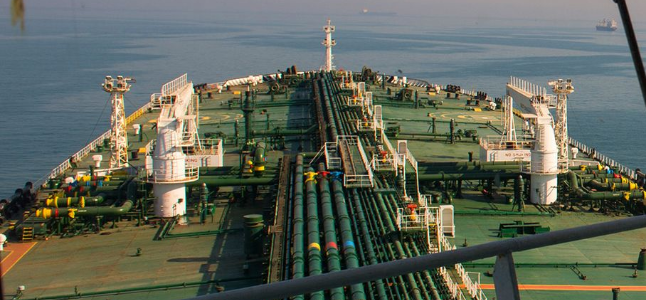
India, the second biggest crude customer for Iran, may cut its imports from the Islamic republic by half to secure a waiver from the U.S. to continue with shipments, people familiar with the matter said.
Officials from the U.S. had discussed the issue of a conditional waiver on sanctions in talks last month in New Delhi, the people said, requesting not to be identified as the discussion was private. India has expressed its inability to scrap oil imports from Iran completely as its supplies are being offered at competitive rates, the people said. New Delhi expects a response as early as next month when talks resume.
President Donald Trump’s administration has been forced to reconsider its plan to choke off all of Iran’s oil exports after countries including China and India — which together comprise about half of Iran’s oil exports — expressed their inability to halt shipments. Washington is now said to project a 50 percent cut in exports when it reimposes energy sanctions in early November.
After initial success in persuading allies Japan and South Korea, U.S. is finding it tough to convince even European Union nations. These push backs are forcing the U.S. to consider waivers to countries on a case-by-case basis as it feels even a significant reduction would be a blow to Iran’s battered economy.
India continued with Iranian imports even after Trump announced in May that he was withdrawing from the 2015 nuclear deal. Indian Oil Corp., the biggest refiner and a top customer of Iran, has been purchasing oil proportionate to its annual term contracts so far and has booked cargoes for September, its Chairman Sanjiv Singh said on Monday.
India, the second biggest crude customer for Iran, may cut its imports from the Islamic republic by half to secure a waiver from the U.S. to continue with shipments, people familiar with the matter said.
Officials from the U.S. had discussed the issue of a conditional waiver on sanctions in talks last month in New Delhi, the people said, requesting not to be identified as the discussion was private. India has expressed its inability to scrap oil imports from Iran completely as its supplies are being offered at competitive rates, the people said. New Delhi expects a response as early as next month when talks resume.
President Donald Trump’s administration has been forced to reconsider its plan to choke off all of Iran’s oil exports after countries including China and India — which together comprise about half of Iran’s oil exports — expressed their inability to halt shipments. Washington is now said to project a 50 percent cut in exports when it reimposes energy sanctions in early November.
After initial success in persuading allies Japan and South Korea, U.S. is finding it tough to convince even European Union nations. These push backs are forcing the U.S. to consider waivers to countries on a case-by-case basis as it feels even a significant reduction would be a blow to Iran’s battered economy.
India continued with Iranian imports even after Trump announced in May that he was withdrawing from the 2015 nuclear deal. Indian Oil Corp., the biggest refiner and a top customer of Iran, has been purchasing oil proportionate to its annual term contracts so far and has booked cargoes for September, its Chairman Sanjiv Singh said on Monday.
India is estimated to have imported 22.6 million tons of Iranian oil during the 12 months through March 31, as against 27.2 million tons a year earlier. The South Asian nation’s purchases climbed from about 11 million tons in 2016-17. Refiners in the south Asian nation were quick to ramp up imports from the Persian Gulf state after the previous round of sanctions were lifted in 2015.
While New Delhi has been preparing for alternative supplies, ending purchases from Iran will cost the country savings on shipping and the longest credit repayment period offered by any of its suppliers.
India, the world’s third-biggest oil consumer, meets more than 80 percent of its requirements through imports. Iran is its third-largest supplier after Iraq and Saudi Arabia, and meets about 10 percent of total needs.

